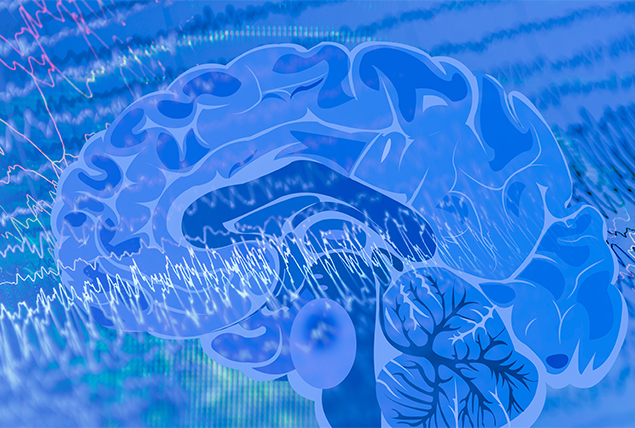Fertility and Pregnancy With Epilepsy

Epilepsy can impact various facets of a person's life, such as fertility and the decision to have children. Genetics feature in about 30 percent to 40 percent of cases, and symptoms can make pregnancy and parenting more challenging. The condition and medications used for treatment may make conception more difficult.
However, despite older research suggesting otherwise, people with well-managed epilepsy remain as likely as the general population to carry healthy pregnancies to term.
"While birth rates are lower in people with epilepsy, it is not clear if this is because of intentionally avoiding pregnancy due to overall health, avoiding pregnancy due to seizure medication side effects or miscarriages/abortions related to fetal malformations," said Liz Rubin, M.D., a reproductive endocrinologist and fertility doctor at Oregon Health and Science University in Portland.
For people with epilepsy who are considering kids, understanding the challenges and how to overcome them may help increase the chances of a safe and healthy pregnancy.
How epilepsy medication can affect fertility
Antiepileptic drugs (AEDs) are integral to managing epilepsy and ensuring a safe pregnancy. However, they can also affect people's ability to conceive in the first place.
According to a study published in Epilepsy and Behavior in November 2020, AEDs might affect fertility in one of the following ways:
- Adversely affecting the endocrine glands
- Contributing to secondary endocrine disorders
- Diminishing serum sex hormones' bioactivity
- Inhibiting sex hormone production and availability
For example, research indicates men who take valproic acid tend to have sexual dysfunctions, such as low libido and erectile dysfunction, lower sperm count and more sperm abnormalities.
In women, valproic acid is associated with diminished libido, anorgasmia—or delayed or nonexistent orgasms—and an increased risk of polycystic ovary syndrome (PCOS). About 10 percent of menstruating women taking valproate develop PCOS, Rubin said.
Rather than being a direct result of the medication, it may be that weight gain—a common side effect—increases people's susceptibility to PCOS, according to Alison Pack, M.D., an epilepsy specialist at Columbia University Irving Medical Center in New York City. Liver enzyme-inducing AEDs can also cause sexual disorders and menstrual irregularities.
"Enzyme-inducing medications can accelerate the metabolism and reduce the bioavailability of sex steroid hormones that can affect fertility," Pack said.
Additionally, some enzyme-inducing medications can increase the production of sex hormone binding globulin (SHBG), further reducing the bioavailability of the sex hormones testosterone and estrogen, Pack explained.
Not all AEDs have the same implications, and older-generation medicines are more likely than newer ones to impact fertility.
Examples of older AEDs include:
- Carbamazepine
- Phenobarbital
- Phenytoin
- Valproic acid
Newer AEDs include:
- Lamotrigine
- Levetiracetam
- Oxcarbazepine
The dose and number of medications can make a difference, too, Pack noted. In one study published in May 2011, researchers found the more epilepsy medications a person took, the more difficult it was for them to become pregnant. Similarly, other studies have shown gabapentin typically causes sexual dysfunction in doses higher than 900 milligrams.
How epilepsy might affect fertility
AEDs are more likely than epilepsy to affect fertility, but the condition may contribute by affecting hormones, menstrual cycles and PCOS.
Hormones
Rubin said there's much unknown about epilepsy's effect on the endocrine system, which is responsible for producing and regulating reproductive hormones. But seizures may interfere with the hypothalamic-pituitary axis and gonadotropin-releasing hormones.
"The signal to the gonads (ovaries and testes) comes from the brain, so seizure activity can cause changes that ultimately result in abnormal signaling, abnormal sex hormone production by the gonads and endocrine dysfunction," Rubin said. "This can lead to problems related to systems and processes that need these hormones, such as fertility, pregnancy and sexuality."
Menstrual cycles
Hormones such as progesterone, estrogen, luteinizing hormone (LH), gonadotropin-releasing hormone (GnRH) and follicle-stimulating hormone (FSH) all play a role in menstruation. By disrupting the balance of these hormones, epilepsy can disrupt the menstrual cycle, causing missed or delayed periods and anovulatory cycles, where ovulation doesn't occur.
Additionally, about half of menstruating women with epilepsy have catamenial epilepsy, where seizures worsen during ovulation, according to the Epilepsy Foundation. Many people with catamenial epilepsy use contraceptives, such as an IUD, to prevent menstruation and its associated seizures. Stopping these medications can restore fertility, but conceiving while using them may not be possible.
PCOS
Polycystic ovary syndrome affects about 4 percent to 6 percent of women in the general population and is a leading cause of infertility. Along with symptoms such as weight gain and insomnia, it can disrupt periods, prevent ovulation and increase the risk of miscarriage.
Among menstruating people with temporal lobe epilepsy, PCOS is even more prevalent, affecting 10 percent to 25 percent of the population. Although AEDs can increase the risk, people with epilepsy appear more susceptible than the general population, even if they aren't on anti-seizure medication.
Pack said there are different hypotheses to explain the association of epilepsy with PCOS. However, it most likely stems from epilepsy's effect on the hypotonic-pituitary axis and results in hormonal imbalances.
How to improve fertility
Generally, Pack and Rubin noted measures to improve overall health could improve fertility and pregnancy outcomes for people with epilepsy.
They advised people concerned about medication's potential effects on fertility to talk with their doctor. Although stopping AEDs is generally not recommended, changing the type or dose under a doctor's guidance may be helpful.
Pregnancy risks associated with epilepsy
Most people with epilepsy carry their baby to term without incident. But planning ahead and working with a neurologist and high-risk obstetrician is crucial, according to Rubin, as an unplanned pregnancy could be dangerous for a person with epilepsy and their unborn child.
AEDs and pregnancy
Pregnancy-related hormone fluctuations can diminish AEDs' effectiveness. A doctor may recommend regular blood tests to check AED levels and reduce the risk of seizures.
Healthcare providers may recommend a woman change medication dosage or type before becoming pregnant, as AEDs can increase the chances of congenital disabilities. Again, older AEDs, higher doses and taking multiple AEDs are considered more dangerous. Typically, doctors now prescribe lamotrigine and levetiracetam in pregnant people with epilepsy, Pack said. In people who take these, the risk of major congenital malformations is about 3 percent, compared to 2 percent in the general population.
Stopping AEDs is generally not advised, as the benefits outweigh the risks.
Seizures and pregnancy
Hormone changes, stress and other pregnancy-related factors can affect seizure frequency or severity for some people, though most experience no difference.
Besides increasing the risk of falls and injury, prolonged seizures can deprive the fetus of oxygen, leading to congenital disabilities, premature labor or miscarriage. According to Mayo Clinic, uncontrolled seizures are more likely to harm the fetus than antiseizure medications.
The bottom line
Epilepsy and the medications used to treat it can inhibit fertility and increase the risk of adverse pregnancy outcomes. However, with a healthcare team's support and healthy lifestyle choices, most people with epilepsy can carry healthy pregnancies to term.
If you have epilepsy and are considering starting a family, speak with your doctors as soon as possible to discuss potential challenges and how to overcome them.


















